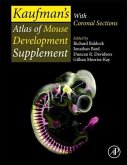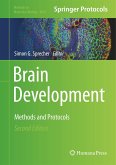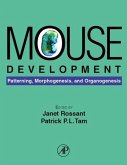Widely recognized as one of the most important signaling mechanisms in development and disease, Wnt signaling pathways are networks of proteins that play significant roles in embryogenesis or cancer development. Wnt Signaling in Development and Disease addresses the fundamentals of Wnt signaling and delves into molecular pathway mechanisms, its role in embryogenesis, adult tissue homeostasis, and chronic disease. This comprehensive resource details current knowledge of Wnt signaling while looking ahead to future progress.
Wnt signaling in Development and Disease: Molecular Mechanisms and Biological Functions reviews the core topics in Wnt signaling, from molecular pathway mechanisms to its role in embryogenesis, adult tissue homeostasis, and chronic disease. Written by a team of expert reviewers, the book provides clear and concise coverage of the core foundations of Wnt signaling before advancing to discussion of cutting-edge scientific research. Focused on the biological insights and current scientific questions of Wnt signaling, this book will be a comprehensive and definitive resource for a wide range of researchers and students in cell signaling, cell physiology, developmental biology, and biomedical engineering, as well as anyone interested in learning more about this important and complex protein network.
A definitive source of information on Wnt signaling and its role in development and disease, written by leaders in the field.
Explores the role of Wnt signaling in chronic disease such as melanoma, colorectal cancer, dementia, and psychiatric diseases
Reviews the complex processes of signal integration and regulation
Features broad discussion of Wnt signaling biology as well as detailed discussion of the pathway's role in diseases and potential clinical applications.
Wnt signaling in Development and Disease: Molecular Mechanisms and Biological Functions reviews the core topics in Wnt signaling, from molecular pathway mechanisms to its role in embryogenesis, adult tissue homeostasis, and chronic disease. Written by a team of expert reviewers, the book provides clear and concise coverage of the core foundations of Wnt signaling before advancing to discussion of cutting-edge scientific research. Focused on the biological insights and current scientific questions of Wnt signaling, this book will be a comprehensive and definitive resource for a wide range of researchers and students in cell signaling, cell physiology, developmental biology, and biomedical engineering, as well as anyone interested in learning more about this important and complex protein network.
A definitive source of information on Wnt signaling and its role in development and disease, written by leaders in the field.
Explores the role of Wnt signaling in chronic disease such as melanoma, colorectal cancer, dementia, and psychiatric diseases
Reviews the complex processes of signal integration and regulation
Features broad discussion of Wnt signaling biology as well as detailed discussion of the pathway's role in diseases and potential clinical applications.








